Known today as a Democratic Party stronghold, Chicago has ties to the Grand Old Party dating to Abraham Lincoln’s times. One twentieth-century GOP stalwart was Bertha Baur, who long made her home at 1511 Astor Street in the Gold Coast. National Republican Committeewoman for Illinois from 1928 to 1952, Mrs. Baur had a groundbreaking career as a business manager, fundraiser, suffragette, and Republican Party leader. A small collection of her papers at the Museum opens a window on numerous aspects of Chicago and national history.
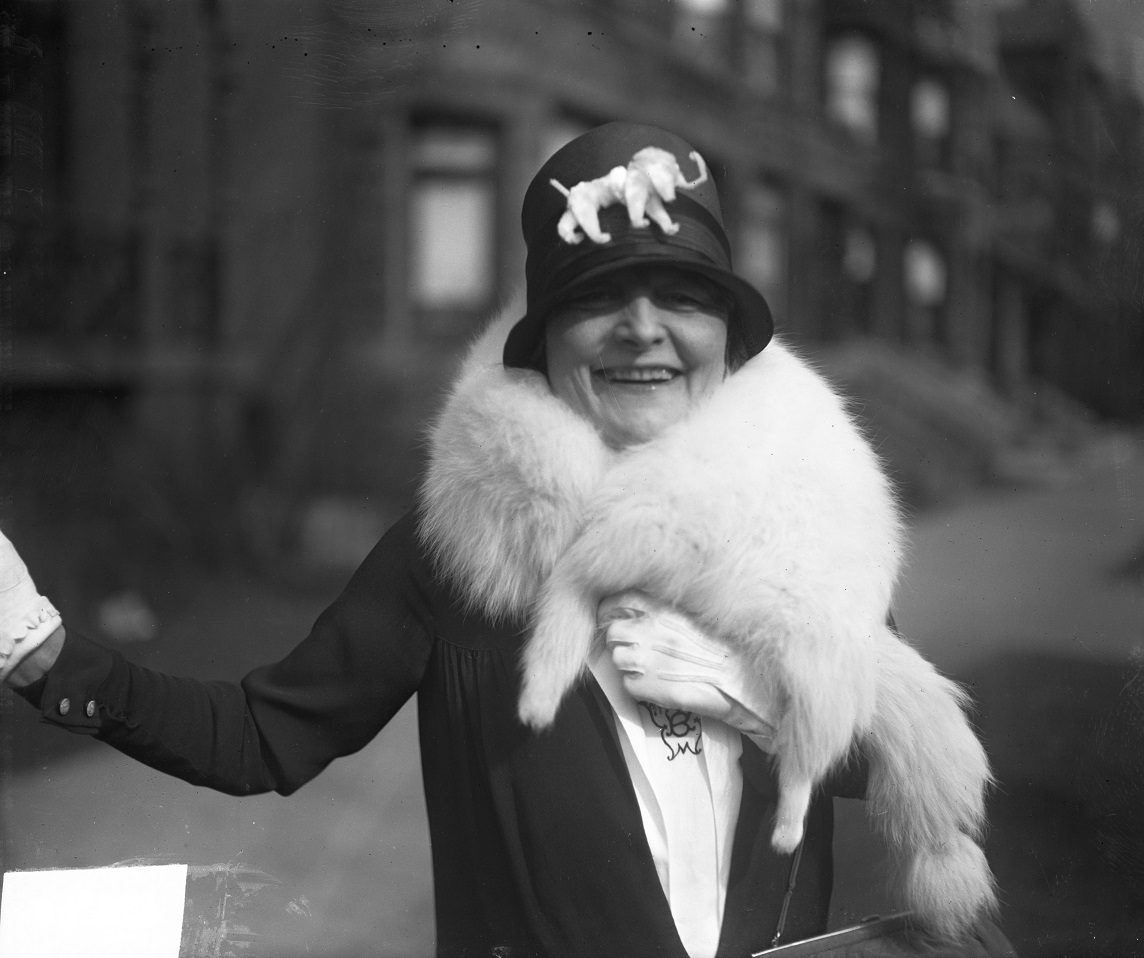
Bertha Baur in 1926. Photograph by the Chicago Daily News, DN-008052
She was born Bertha Elizabeth Duppler in Mineral Point, Wisconsin, in 1871. Duppler arrived in Chicago at age seventeen, enrolled in business school, and before long was secretary to a succession of Chicago postmasters. It was generally understood that she ran the office when the postmaster was absent.
Duppler enrolled in Chicago-Kent College of Law and was the sole female graduate of the class of 1908. That same year, she married Jacob Baur, founder of the Liquid Carbonic Company, which provided soda water dispensers to the nation’s ice cream parlors and taverns. When he died in 1912, Mrs. Baur stepped in to help run the company. She served on its board of directors until 1926.
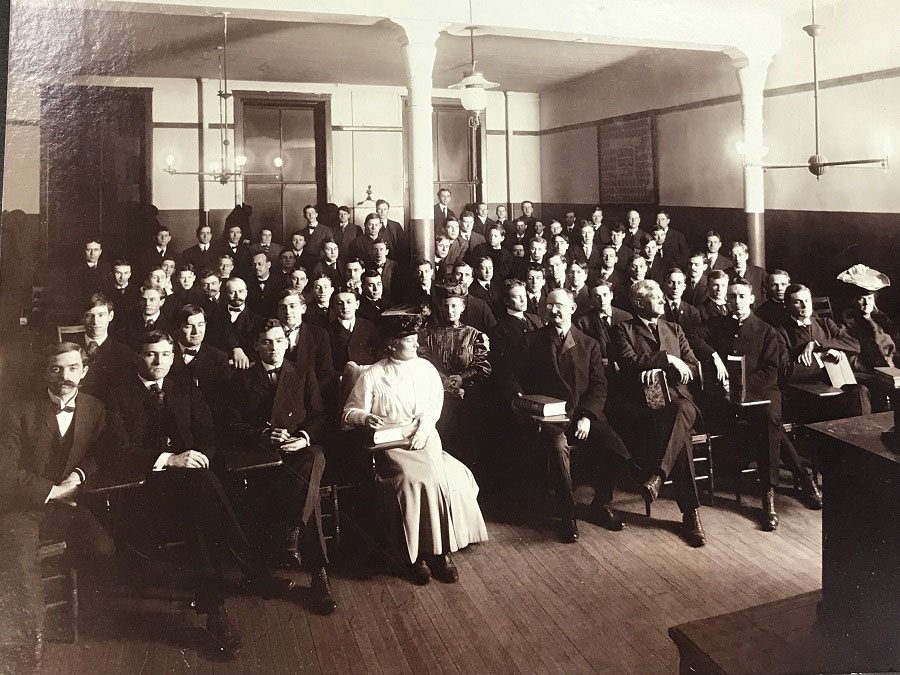
An undated photograph of Bertha Duppler (front, in white) in law school.
Mrs. Baur was a dedicated suffragette, helping to secure Illinois’ 1919 ratification of the Nineteenth Amendment, which gave women the right to vote. As a follow-up, she cofounded the League of Women Voters. She sold Liberty Bonds during World War I and chaired a committee that raised $1 million for the Civic Opera, a predecessor of today’s Lyric Opera.
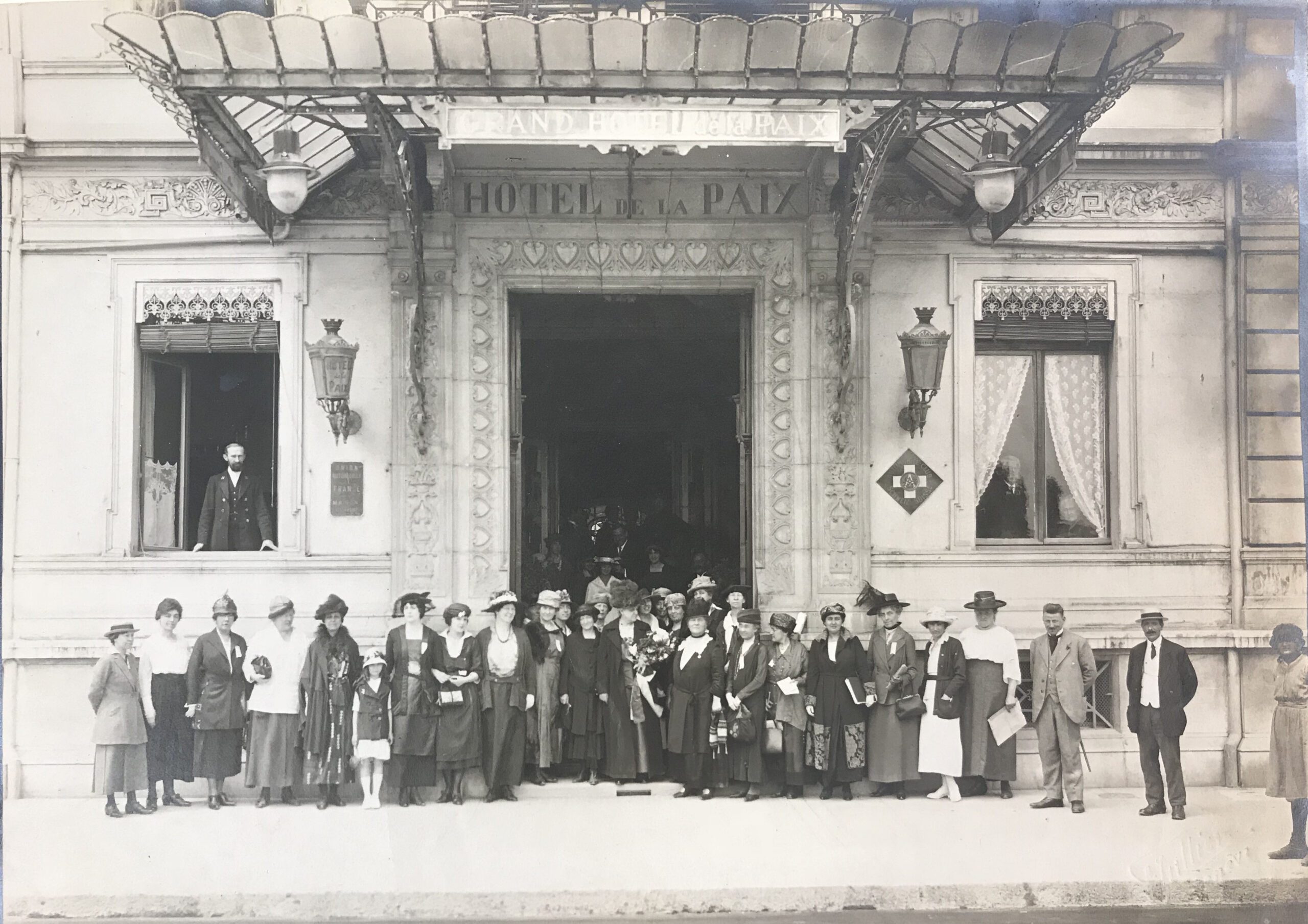
In 1920, Mrs. Baur attended the Eighth Conference of the International Woman Suffrage Alliance in Geneva, Switzerland. Here, a group of attendees pose for a photograph at the Hôtel de la Paix.
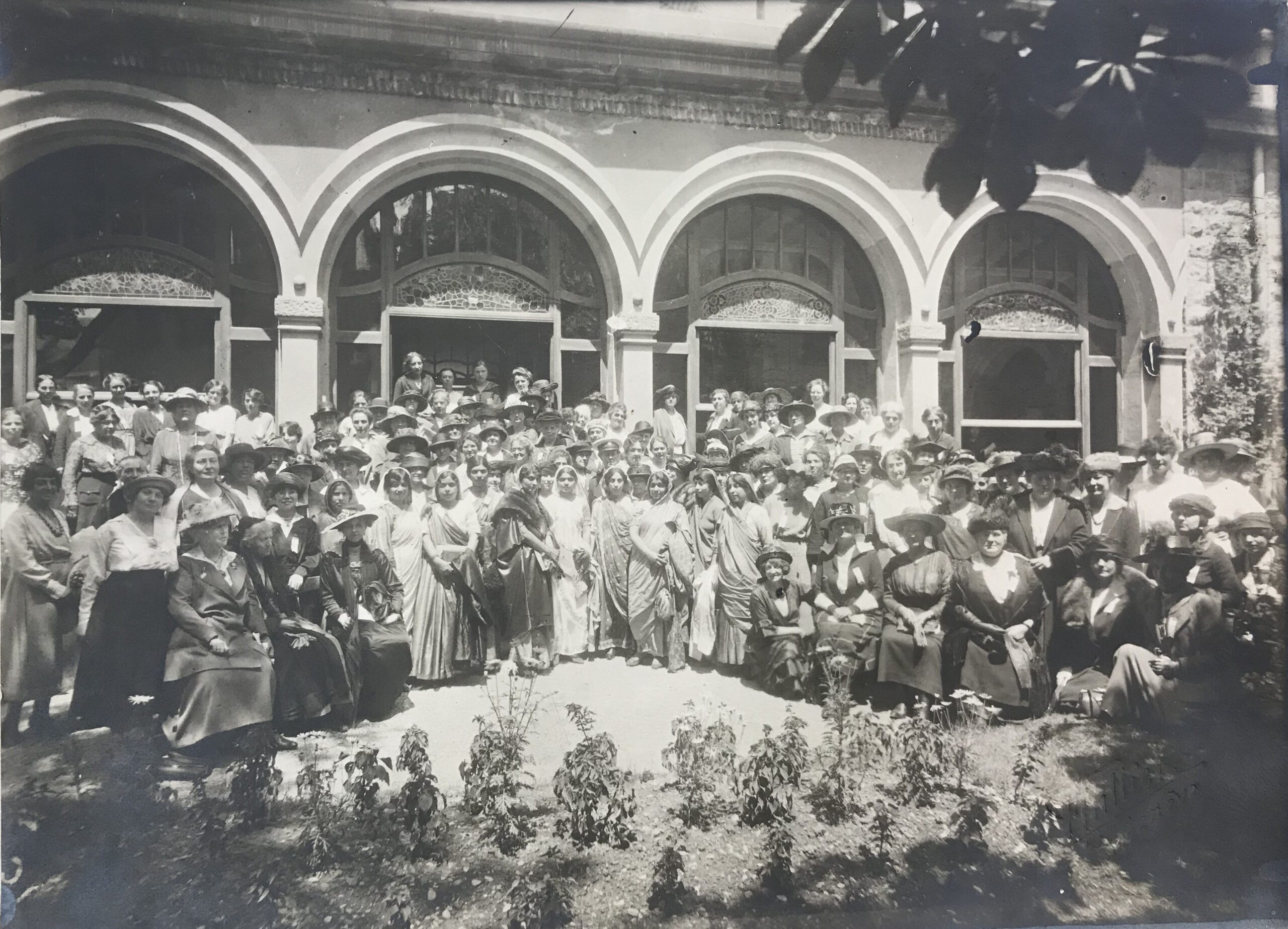
At the conference, women from thirty-six countries gathered to discuss full suffrage, civil equality, equal pay, and the welfare of women in all lands.
In 1952, Mrs. Baur was the official hostess for the Republican National Convention, held at Chicago’s International Amphitheater and Conrad Hilton Hotel. Her convention planning efforts and other party activities are well documented in the collection. A supporter of Senator Robert Taft of Ohio, she was likely disappointed when the convention nominated war hero Dwight Eisenhower. Mrs. Baur remained active in party affairs into her nineties, before passing away in 1967.
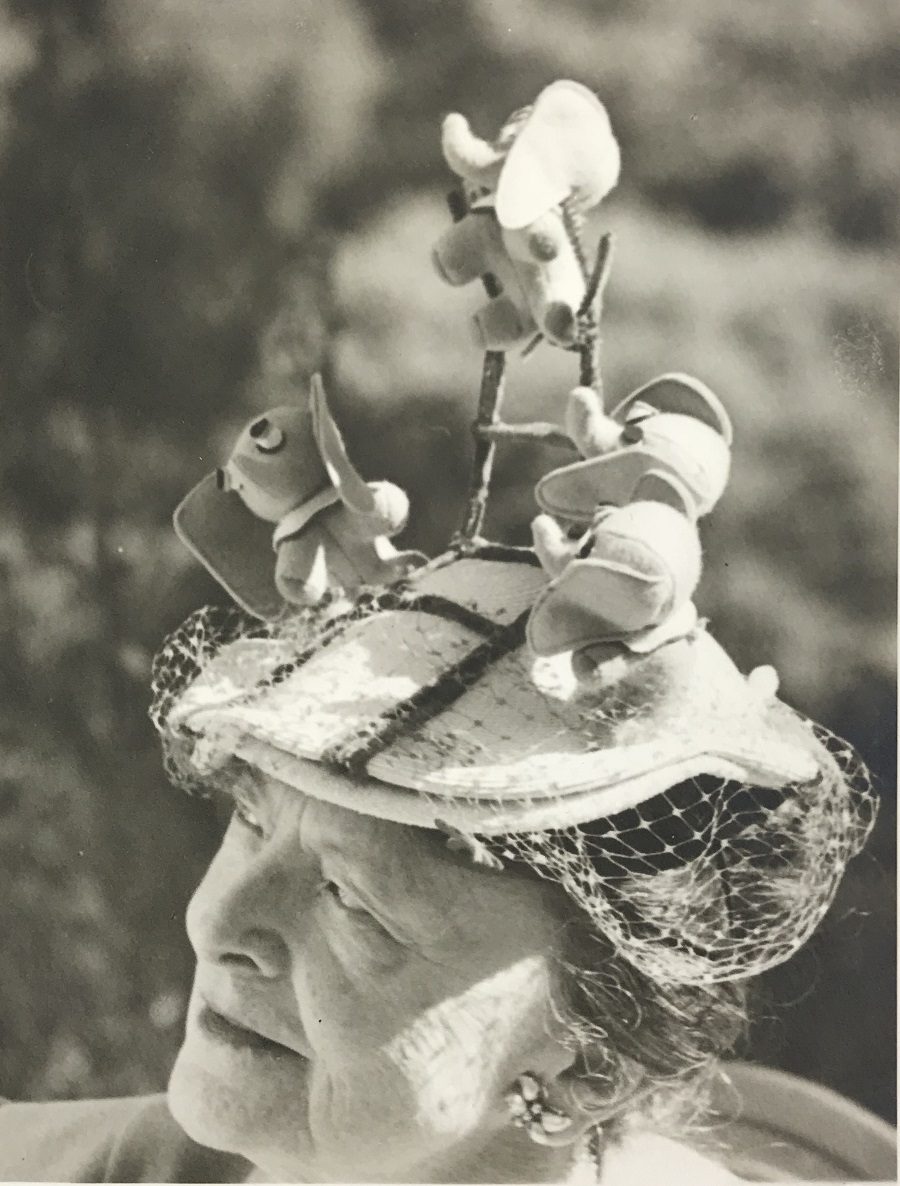
A staunch supporter of the Republican Party, Mrs. Baur enjoyed collecting hats adorned with elephants, such as this one by Bes-Ben.
Tucked away in the Bertha Baur papers is a letter demonstrating that Chicago in 1903 was not yet ready for reform. Graeme Stewart was the Republican candidate for mayor that year, and Jacob Baur had some advice for him: “P. J. King . . . is one of the Chief men concerned in the Policy game in the city . . . and can control with his money from 500 to 1,000 votes.” [original capitalization] With this collection, you can explore Chicago politics and Mrs. Baur’s varied activities. The Bertha Baur papers can be found in the Chicago History Museum’s Research Center, which is free to visit.